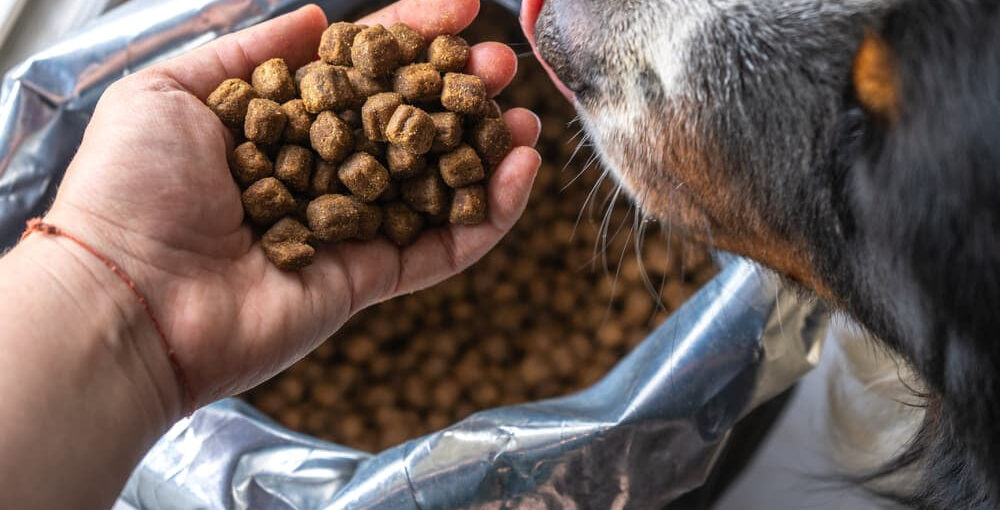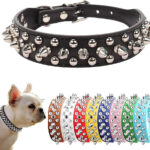As pet owners, our primary goal is to keep our dogs healthy, happy, and comfortable all year round. One of the most important aspects of your dog’s well-being is their diet, especially if they suffer from food allergies or sensitivities. Hypoallergenic dog food offers a great solution for dogs with food-related allergies, providing them with a safe and nutritious diet. In this guide, we will explore seasonal tips on how to choose the best dog food to support your dog’s health throughout the year.
What is Hypoallergenic Dog Food?
Before diving into seasonal tips, it’s important to understand what hypoallergenic dog food is and why it’s beneficial. This type of food is specially formulated to minimize allergens that might trigger allergic reactions in dogs. Common allergens such as beef, chicken, dairy, and wheat are often excluded from these diets, and novel proteins like lamb, duck, or fish are included instead. These foods are designed to improve digestive health, reduce skin irritations, and boost overall immune function.
Choosing the right dog food can make a significant difference in your dog’s health, especially if they have food allergies or a sensitive stomach. Seasonal changes can impact your dog’s dietary needs, so it’s essential to adjust their food to match the time of year.

Spring: Renew and Refresh Your Dog’s Diet
Spring marks the beginning of warmer weather and an increase in environmental allergens like pollen. During this time, many dogs with allergies experience flare-ups in their skin or respiratory issues. When choosing hypoallergenic dog food in the spring, focus on foods that support your dog’s immune system and help manage allergy symptoms.
- Spring Tip: Look for dog food that contains omega-3 fatty acids, which can help reduce inflammation and improve skin health. Ingredients like fish oil or flaxseed are great options to keep your dog’s coat shiny and healthy during allergy season.
- Ingredient Focus: Salmon, trout, and other fish proteins are excellent sources of omega-3s and are less likely to trigger allergies than more common proteins like chicken or beef.
- Probiotics: Spring allergies can affect your dog’s digestive system, so consider adding probiotics to their diet. Probiotics promote healthy digestion and can help keep their immune system strong during allergy season.

Summer: Keep Your Dog Cool and Comfortable
Summer is a time of fun and outdoor activities, but it also brings a higher risk of flea, tick, and other insect-related allergies. Additionally, the warmer weather can exacerbate your dog’s skin sensitivities. During this season, you’ll want to continue feeding your dog dog food that supports skin health and boosts their immune system.
- Summer Tip: Choose hypoallergenic dog food with antioxidant-rich ingredients like blueberries, spinach, and sweet potatoes. These foods not only help fight inflammation but also improve skin hydration, which is essential during hot summer months.
- Ingredient Focus: Lamb and venison are excellent protein choices for dogs with allergies, as they are less likely to trigger reactions. Foods with high-quality fats like flaxseed oil can also keep your dog’s skin healthy and prevent dryness caused by hot, dry weather.
- Flea Prevention: Although food plays an essential role in keeping your dog healthy, don’t forget about flea and tick prevention. Using flea preventatives can help minimize the impact of these pests on your dog’s health and comfort.
Fall: Prepare for Weight Management and Joint Health
As the weather cools down and your dog becomes less active, it may be time to adjust their diet to prevent weight gain. In addition to weight management, fall is also a good time to focus on joint health, especially if your dog is older or prone to joint problems. Hypoallergenic dog food designed for these needs can help your dog maintain a healthy weight while supporting joint function.
- Fall Tip: Look for dog food that contains glucosamine and chondroitin, which promote joint health and flexibility. These ingredients are especially helpful for older dogs or breeds prone to arthritis.
- Ingredient Focus: Sweet potatoes and pumpkin are rich in fiber, helping with digestion and preventing unwanted weight gain. They are also full of vitamins that support immune health during cooler months.
- Balance and Portion Control: Since your dog may be less active in fall, ensure you are feeding them the right amount of food. Look for hypoallergenic dog food with a balanced ratio of protein and fat to help them stay lean and healthy.

Winter: Combat Dry Skin and Support Immunity
Winter can be a challenging season for dogs, especially those with sensitive skin or weakened immune systems. The cold air can cause dry, flaky skin, while winter illnesses can affect their overall health. Choosing the right hypoallergenic dog food during winter can help maintain healthy skin, support the immune system, and keep your dog comfortable during the colder months.
- Winter Tip: Opt for dog food with high levels of fatty acids, such as omega-3 and omega-6. These healthy fats help to combat dry skin, promote a shiny coat, and support overall skin hydration.
- Ingredient Focus: Fish oils, flaxseeds, and chicken fat are great sources of omega fatty acids. They help nourish your dog’s skin and maintain a healthy coat, especially in the dry winter air.
- Immune Boosting Ingredients: To support your dog’s immune system during the colder months, choose dog food that contains vitamins like vitamin C and vitamin E. These antioxidants help your dog stay healthy and fight off potential illnesses.
Year-Round Tips for Choosing Hypoallergenic Dog Food
While adjusting your dog’s food based on the seasons is important, there are some general tips to keep in mind when choosing dog food year-round:
- Read the Ingredients Carefully: Always check the ingredients list to ensure the food contains high-quality, easily digestible protein sources. Avoid fillers like soy, corn, or wheat, which can cause allergic reactions in some dogs.
- Consult Your Veterinarian: If your dog has a specific food allergy or sensitivity, consult your veterinarian before switching to new hypoallergenic dog food. They can help guide you in choosing the best diet based on your dog’s needs.
- Monitor Your Dog’s Health: After introducing a new diet, monitor your dog’s coat, skin, and digestive health. If you notice any adverse reactions, such as itching, gastrointestinal upset, or lethargy, consider adjusting their food.
Choosing the right hypoallergenic dog food is essential for your dog’s health, especially considering the seasonal changes that affect their immune system, skin, and overall well-being. By selecting the best food that supports your dog’s health needs throughout the year, you can ensure that they stay happy, healthy, and comfortable.
Refer to some related product lines:
Pedigree Complete Nutrition for Small Dogs – Roasted Chicken, Rice & Vegetable Flavor, 3.5 lb Bag
All-Natural Chicken Tots Dog Treats for Puppy Training – Human-Grade, Easy to Digest, 2-Pack
Chippin Plant-Based Spirulina Dog Treats – Vegan Protein, Chicken-Free, Stop Grass Eating, Made in the USA





